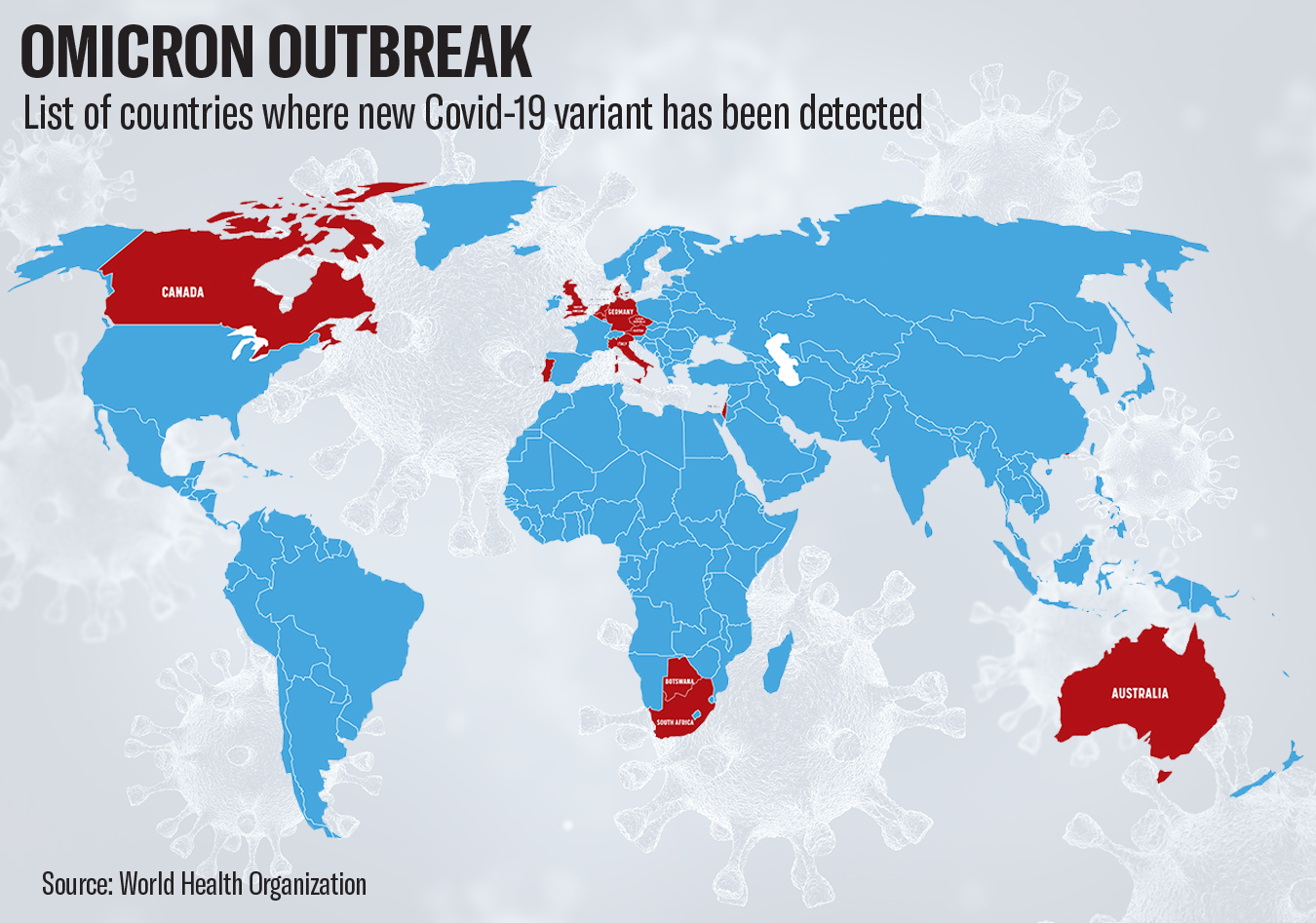Public health officials are warning about the emergence of a new coronavirus strain, known as the omicron variant, that could complicate the return to normalcy in parts of the world.
President Joe Biden said Monday in a speech about the variant that he would aim to avoid new restrictions in his administration’s fight against omicron, which he said would focus on encouraging more people to get vaccinated or receive a booster shot.
BIDEN VOWS TO FIGHT OMICRON SURGE WITH MASKS AND SHOTS, NOT LOCKDOWNS
While scientists are still closely studying the new variant, here is what we know about omicron.
Where did it originate?
The new strain of the virus is believed to have originated in South Africa, where the country’s scientists first detected it on Nov. 9.
The South African foreign ministry has criticized countries that imposed travel bans on people coming from South Africa as a result of the variant, claiming its scientists are being “punished” for discovering the new strain and sharing its data transparently with the scientific community.

Where is it now?
Omicron cases have been reported in Canada, Belgium, Israel, and Hong Kong, among other countries, as world leaders consider travel restrictions and quarantine requirements to contain the spread of the variant.
Israel moved on Saturday to stop all foreign travel into the country for the next two weeks. Israeli citizens will face expanded mandatory quarantines if they return to the country from abroad during that period.
Japan on Monday also moved to stop all noncitizens from crossing its borders to keep omicron from spreading, even though Japanese officials only recently lifted restrictions on certain kinds of travel to the country.
Australia, which has detected just a handful of omicron infections, announced Monday that it would suspend plans to reopen its borders until at least Dec. 15. The Australian prime minister had announced the loosening of border restrictions just last week.
And the United States, which has not yet reported a case of omicron infection, unveiled a temporary ban on entry for noncitizens coming from eight southern African countries, including Botswana, Zimbabwe, and South Africa.
How easily does it spread?
Scientists still have many unanswered questions about the omicron variant, including its transmissibility.
South Africa experienced what the World Health Organization described as a steep increase in coronavirus infections since scientists discovered the new variant there earlier this month, suggesting omicron could contribute to a wider spread.
Because omicron is believed to have dozens of mutations, public health experts have expressed concern that people face a heightened risk of getting reinfected with the variant.
How severe are its symptoms?
Scientists have so far not reported serious illnesses associated with the omicron variant, although the evidence remains inconclusive.
“It is not yet clear whether infection with Omicron causes more severe disease compared to infections with other variants, including Delta,” the WHO said on Sunday, referring to the last variant to catch the attention of international leaders, the delta variant.
Angelique Coetzee, the chairwoman of the South African Medical Association and the doctor credited with alerting authorities to the discovery of omicron, said she has seen no “severely ill” patients struck by the variant.
Coetzee said she has seen no reason so far to panic over the spread of the variant, which has produced symptoms such as fatigue and body aches in her patients who tested positive for omicron.
Do vaccines protect against it?
Vaccinated people have tested positive for the new variant, but public health officials say their cases, like cases involving all strains of the virus, tend to be milder as a result of the shot.
Experts continue to stress the importance of getting vaccinated or boosted, noting that the variant has not to date shown the ability to evade the protection of vaccines.
Pfizer and Moderna are among the pharmaceutical companies already rushing to test whether an updated version of the COVID-19 vaccine will be necessary to protect against the omicron variant given its many mutations.
A new vaccine, however, could take months to hit the market, and it’s not yet clear whether a variant vaccine will be needed to curb transmission.
Will the travel ban stop the spread?
Dr. Anthony Fauci, the Biden administration’s chief medical adviser, said Sunday that omicron will inevitably surface in the U.S. given how transmissible scientists believe the variant to be.
But he said the purpose of the travel bans, such as the one Biden announced last week, is instead to slow the spread while experts learn more.
“Travel bans, when you have a highly transmissible virus, never completely … prevent it from coming into the country,” Fauci said on ABC’s This Week. “No way that’s going to happen. But what you can do is you can delay it enough to get us better prepared.”
CLICK HERE TO READ MORE FROM THE WASHINGTON EXAMINER
Biden is among the politicians who have previously criticized targeted travel bans as racist — a fact touted by his detractors in the wake of his announcement.
In February 2020, when then-President Donald Trump banned travel from a handful of African countries on national security grounds, Biden slammed the move as a “disgrace.”
